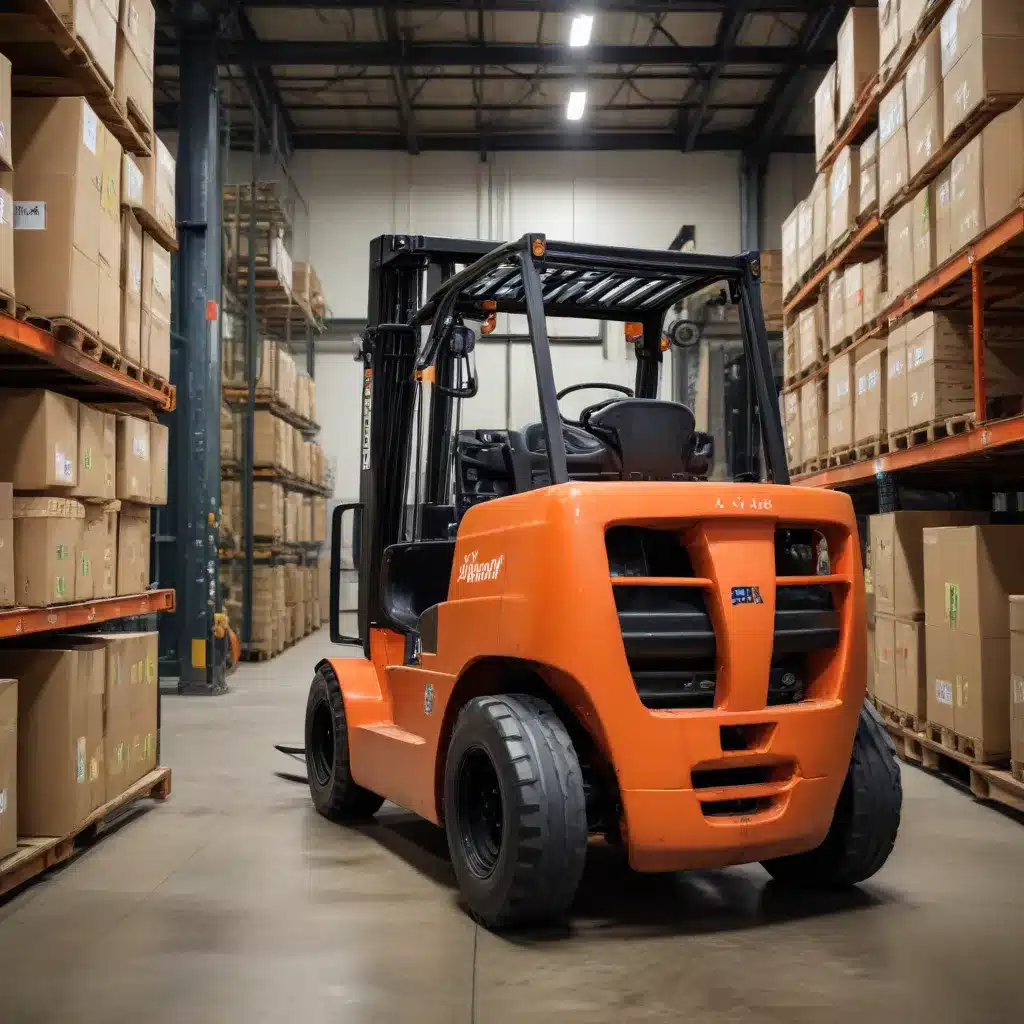
Optimizing Forklift Fleet Composition and Coordination
In today’s fast-paced logistics and warehouse environments, effective management of forklift fleets is crucial for maximizing operational efficiency and productivity. Regularly assessing the size and composition of your forklift fleet can prevent both shortages and costly surpluses, ensuring you have the right number of machines to meet your operational requirements.
Integrating real-time communication systems can enhance coordination among forklift operators, leading to improved response times and overall operational efficiency. These systems allow for immediate updates and adjustments, which are essential in a dynamic warehouse environment. By leveraging technology, you can streamline task management and optimize forklift activities, contributing to a more productive and efficient workflow.
Proactive Maintenance and Upgrades
Maintaining your forklifts in top condition is vital for operational efficiency. Implementing a structured maintenance program, including scheduled inspections and timely upgrades, can significantly reduce downtime and extend the lifespan of your equipment. Regular maintenance not only ensures the reliability of your forklifts but also helps identify potential issues before they escalate into more significant problems.
Maximizing the efficiency of your forklift fleet also involves optimizing route planning. Ensuring that forklifts travel the shortest and safest routes can reduce unnecessary movements, saving time and improving overall productivity. Implementing advanced routing software can help streamline this process, leading to smoother and more efficient warehouse operations.
Investing in Operator Training and Technology Integration
Effective training programs are essential for enhancing forklift operator skills and safety. Comprehensive training covers operational techniques, safety protocols, and maintenance knowledge, which are critical for optimizing productivity and minimizing accidents. By upskilling your operators, you can unlock the full potential of your forklift fleet and create a safer work environment.
Leveraging technology can significantly improve task management and fleet coordination. Real-time tracking systems and automated task assignments help in coordinating forklift activities, ensuring that every move is calculated and contributes to overall efficiency. This integration of technology not only boosts productivity but also enhances the accuracy of inventory management, leading to more streamlined and reliable operations.
Cost-Saving Strategies and Environmental Considerations
Proper management of forklift fleets can lead to significant cost-saving benefits. Key areas of savings include reduced maintenance costs, lower fuel consumption, and extended equipment lifespan. By efficiently scheduling forklift operations, you can create more efficient routes, reduce unnecessary travel time, and improve overall productivity, ultimately maximizing asset utilization.
Proactive management of forklift usage not only saves money but also boosts productivity. Adopting technologies like lithium-ion powered forklifts can transform operations by cutting costs and reducing emissions. This strategic approach aligns with the growing emphasis on environmental sustainability, as businesses strive to minimize the carbon footprint of their material handling operations.
Embracing Innovation and Futureproofing Your Forklift Fleet
The shift towards autonomous forklifts is set to revolutionize warehouse operations. These self-driving forklifts can operate without direct human intervention, enhancing safety and efficiency. They are programmed to navigate through warehouses with precision, reducing the risk of accidents and improving overall workflow.
Integrating forklift operations with the Internet of Things (IoT) and Artificial Intelligence (AI) allows for real-time data analysis and decision-making. This technology enables predictive maintenance, which can prolong forklift battery life and minimize downtime. Fleet managers can monitor forklifts remotely, optimizing routes and schedules based on immediate data insights, further enhancing the efficiency and cost-effectiveness of their operations.
Conclusion
Effective management of forklift fleets is crucial for maximizing warehouse efficiency and productivity. By implementing robust fleet management strategies, maintaining forklifts regularly, and ensuring proper training for operators, warehouses can significantly enhance their operations and extend the lifespan of their assets.
Strategic optimization of forklift usage not only supports smoother internal workflows but also contributes to substantial cost savings. As demands on warehouses continue to grow, adopting best practices in forklift fleet management becomes indispensable for staying competitive and meeting operational goals efficiently.
Embracing innovative technologies, such as autonomous forklifts and IoT-powered fleet management, can further revolutionize the way warehouses operate, paving the way for a more sustainable and efficient future. By staying ahead of industry trends and continuously optimizing forklift fleet management, businesses can position themselves for long-term success in the ever-evolving logistics landscape.
To learn more about forklift reviews, safety guidelines, and the latest industry innovations, visit https://www.forkliftreviews.com/.
Practical Tips for Effective Forklift Fleet Management
Maintain a Balanced Fleet Composition
Regularly analyze your operational requirements to determine the appropriate number of forklifts, ensuring you have neither shortages nor costly surpluses. This will help you optimize your fleet size and composition for maximum efficiency.
Implement Real-Time Communication Systems
Integrating real-time communication systems, such as fleet management software, can enhance coordination among forklift operators. This allows for immediate updates and adjustments, enabling a more responsive and efficient workflow.
Establish a Structured Maintenance Program
Develop a comprehensive maintenance program that includes scheduled inspections, timely upgrades, and proactive repairs. This will help reduce downtime, extend the lifespan of your forklifts, and maintain consistent operational performance.
Optimize Route Planning
Implement advanced routing software to ensure forklifts travel the shortest and safest routes, minimizing unnecessary movements and improving overall productivity.
Provide Comprehensive Operator Training
Invest in thorough training programs that cover operational techniques, safety protocols, and maintenance knowledge. Empowering your forklift operators with the right skills and knowledge can boost productivity and enhance workplace safety.
Leverage Data Analytics and Technology
Utilize fleet management software, IoT integration, and AI-powered predictive analytics to monitor forklift performance, optimize scheduling, and make data-driven decisions that improve efficiency and reduce costs.
Prioritize Environmental Sustainability
Adopt clean technologies, such as electric or hybrid forklifts, to reduce emissions and align your operations with the growing emphasis on environmental sustainability.
By implementing these practical tips and embracing a holistic approach to forklift fleet management, you can unlock the full potential of your material handling operations, drive cost savings, and position your business for long-term success in the competitive logistics landscape.

